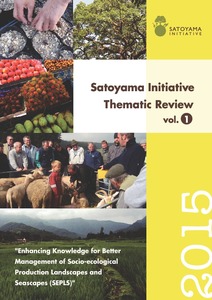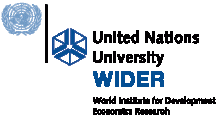Resource information
In order to understand farmers’ perceptions of resilience
in socio-ecological production landscapes and seascapes
(SEPLS), a participatory field assessment was conducted in
Kenya. A tool developed by the United Nations University-
Institute of Advanced Studies and Bioversity International
was used to elucidate the range of perceptions of risk
faced by five communities living in different agro-ecological
and socio-economic conditions. This paper presents
the practical process of carrying out assessments at the
community level and also lessons learned while testing
the toolkit. The process of using SEPLS indicators was
confirmed valuable in: 1) identifying local perceptions of
threats in landscape resilience, the perception differences
in various community landscapes, major causes of
threats and community efforts toward mitigation, 2)
improving awareness through stimulating discussions
with participants, and 3) providing a perspective on
future directions and encouraging local innovations and
potential interventions in response to negative trends. The
discussions were considered vital in creating social capital
for landscape governance, community ownership of the
process and identifying potential interventions. A few areas
of the tool were found wanting and some amendments
have been advanced for consideration.



